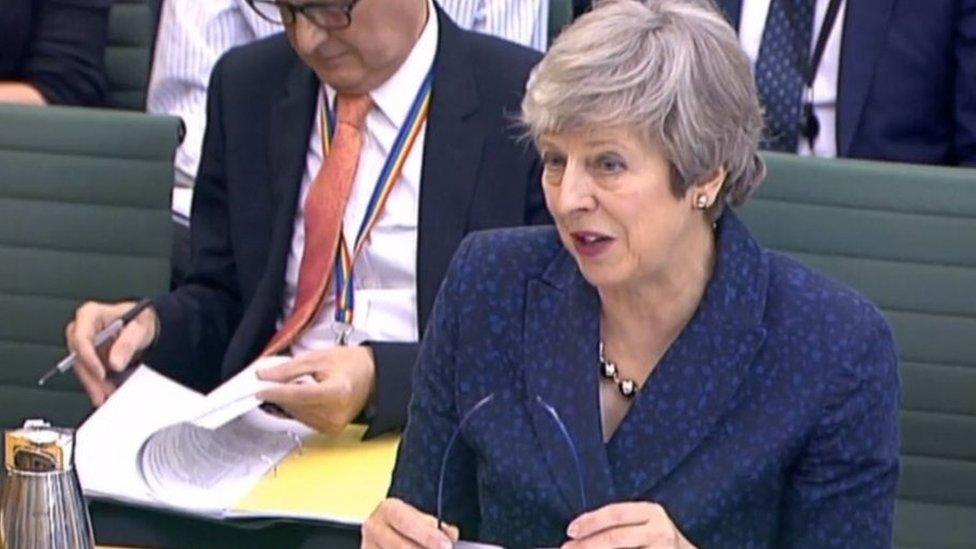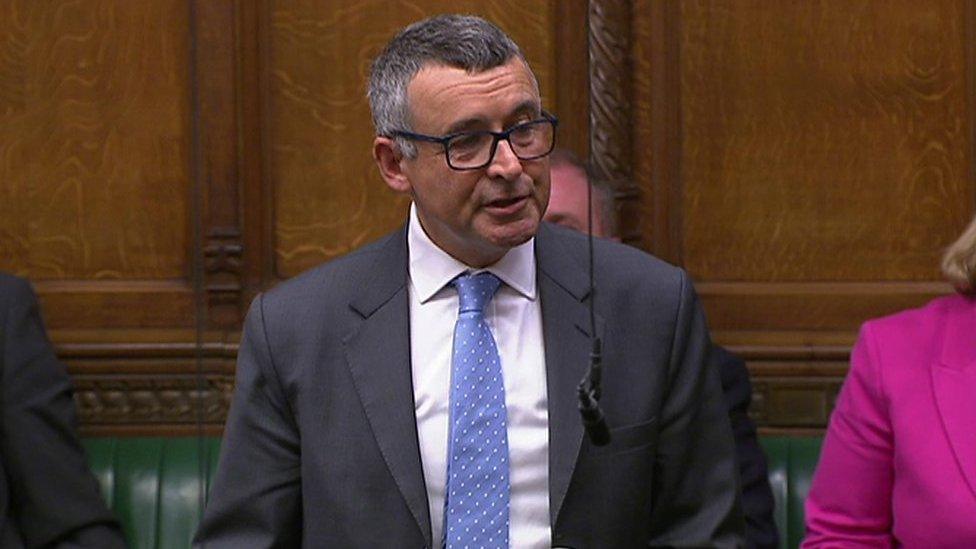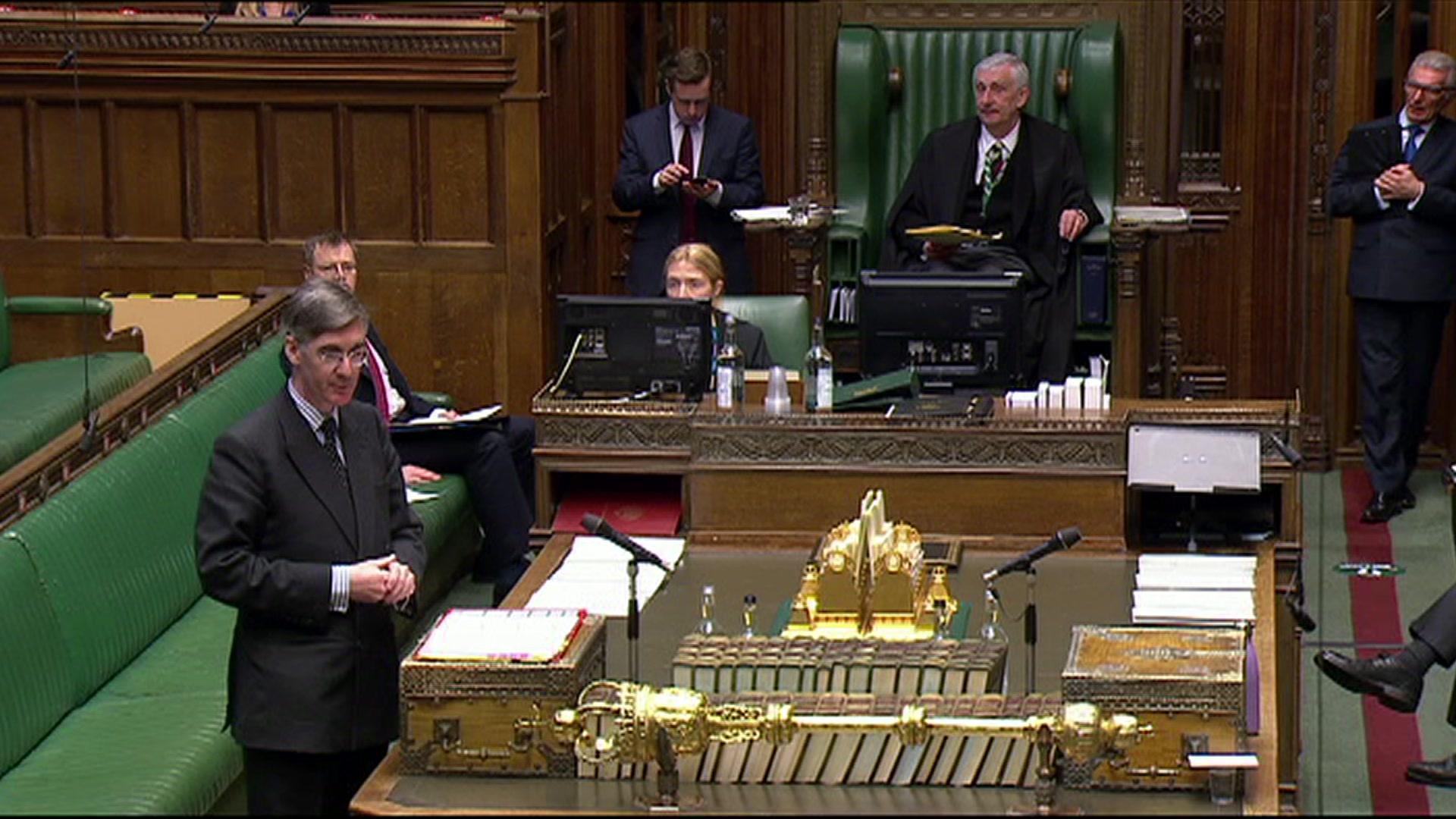Role of PM's inquisitor to be decided
- Published

Theresa May appeared before MPs on the Liaison Committee several times
Should the prime minister choose the individual who leads his (theoretically) twice-yearly questioning?
Since the days of Tony Blair, the prime minister has faced regular questioning by the Commons Liaison Committee, the super-committee made up of the MPs who chair the select committees.
MPs are being asked to install a senior Conservative backbencher, Sir Bernard Jenkin to chair the Liaison Committee, although he no longer chairs a committee of his own. (He chaired the Public Administration Committee through the Coalition years and beyond, up to the last election, but failed to win the chair of the Defence Committee, earlier this year).
Since 2010, they have elected a chair from among their own membership, and although this is quite a new precedent, it matters to many of the members.
When the Liaison Committee was a largely internal affair, adjudicating turf battles between committees and deciding humdrum matters like travel budgets, this would have seemed a rather uninteresting piece of SW1 gossip; now it is the forum for interrogating the prime minister, it's a bit more significant.
In truth, those PM hearings rarely discomforted Tony Blair, Gordon Brown, David Cameron or Theresa May (Boris Johnson has yet to appear before them - which is a row in itself) and at the start they were almost comically bland.
But they have gradually ratcheted up in effectiveness, with a conscious decision to focus on a few areas of questions and to move away from a Buggins turn approach, which gave every member a chance to enjoy the limelight.

Sir Bernard Jenkin does not currently chair any of Parliament's select committees
And the last two chairs in particular, the independent minded Tory, Andrew Tyrie, and the Conservative turned Lib Dem Sarah Wollaston, did give the sessions a bit more bite.
Hence, perhaps, the government's apparent concern that another awkward squaddie might take the chair this time round. Names like Tom Tugendhat, the chair of the Foreign Affairs Committee, and even Jeremy Hunt, the long-serving former health secretary were touted as possible contenders, and would have had an important platform if they had won the job.
Instead, the government has put down a motion that Sir Bernard be a member, and chair of Liaison.
Historically, he has not been anybody's stooge, making his name as a Maastricht rebel in the Major years, and later making himself unpopular with the Cameron government by pushing for a parliamentary commission to reform the Civil Service. He did not enjoy the prime ministerial brush off that idea received.
But the issue here is not so much the personality as the process. For 10 years the chair of Liaison was chosen without (direct) government involvement, but now the government has put up a candidate and will presumably whip its troops to vote the motion through. (The Tory committee chairs will mostly grit their teeth and follow their whip, but they won't like it and they won't forget.)
And that will put Sir Bernard in an unenviable position; every move he makes will be analysed in terms of placeman or rebel.
There are alternative ideas in play. Labour's Harriet Harman, now a veteran of the committee corridor, wants to go back to allowing the Liaison Committee to choose its own chair, from amongst its own members - essentially baking in the status quo.
The Conservative MP Peter Bone proposes allowing the whole House to choose a member of the government party to lead Liaison.
This would mean that the Chair would not have a committee of their own to worry about, and couldn't be accused of bias, but more than that, it would create a powerful parliamentary player, elected by all MPs, who would then be a kind of shop steward for the committee system, and perhaps, ultimately for backbenchers, too, while also questioning the PM with extra authority.
And on the principle that governments try to avoid manufacturing rods for their own back, that seems unlikely to be allowed to happen.
- Published2 April 2020

- Published21 April 2020

